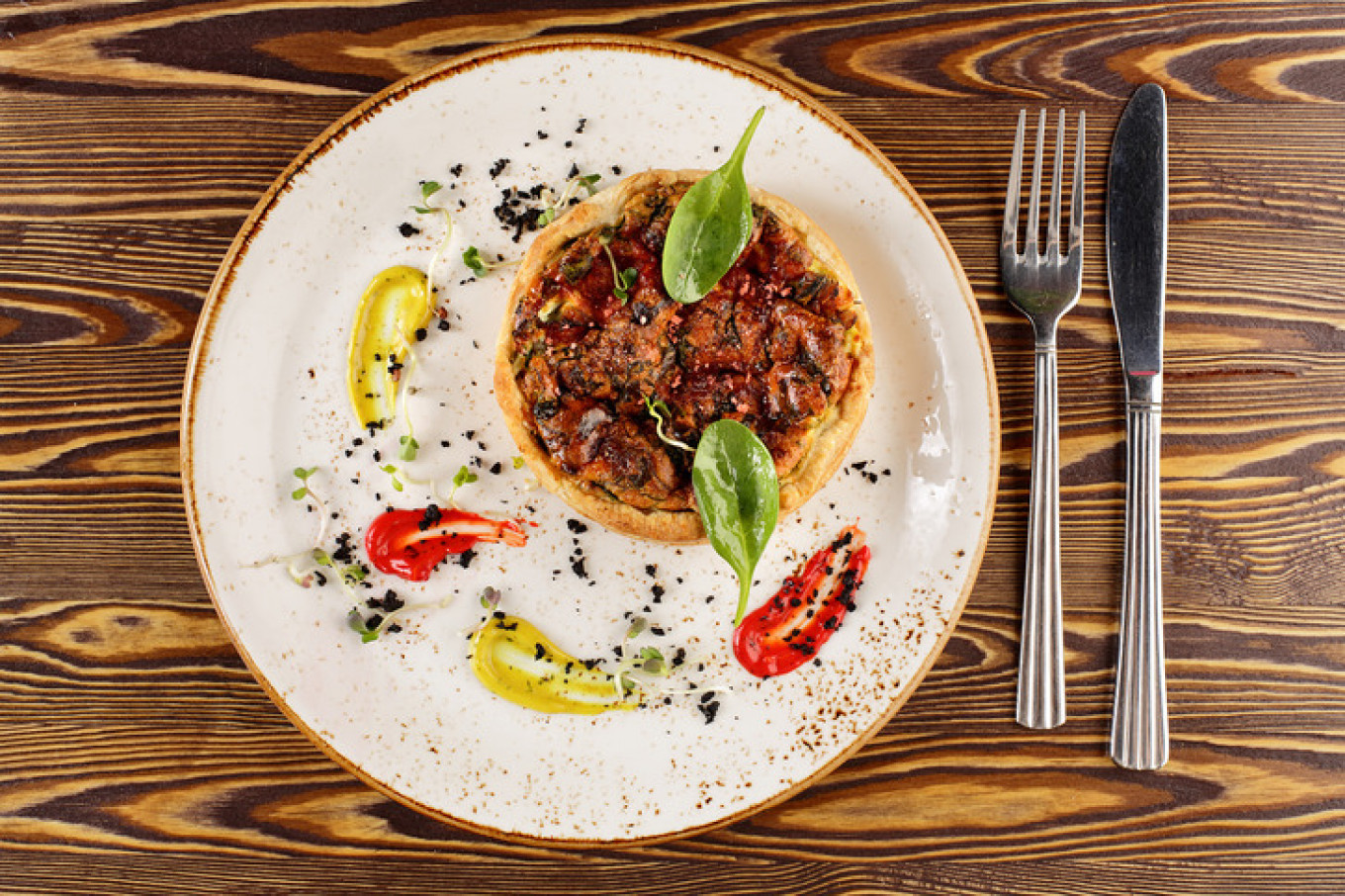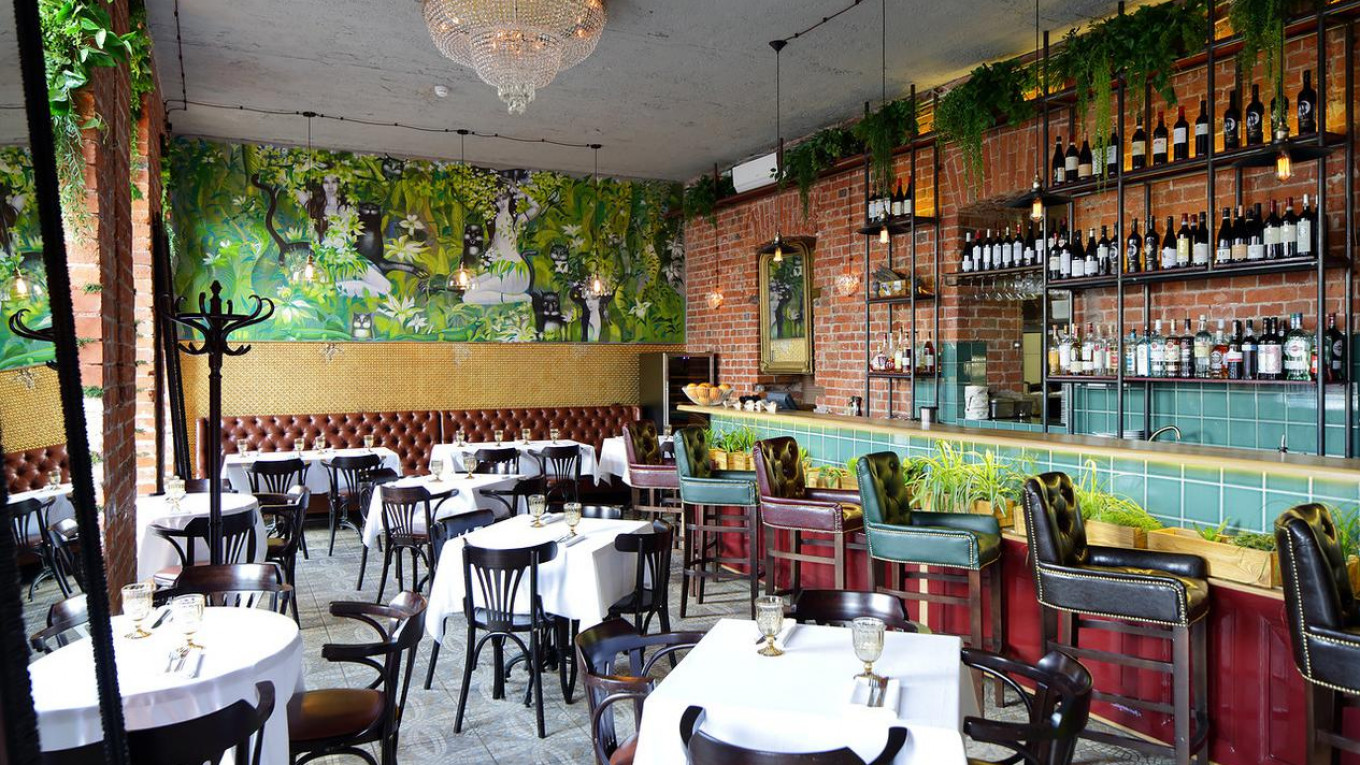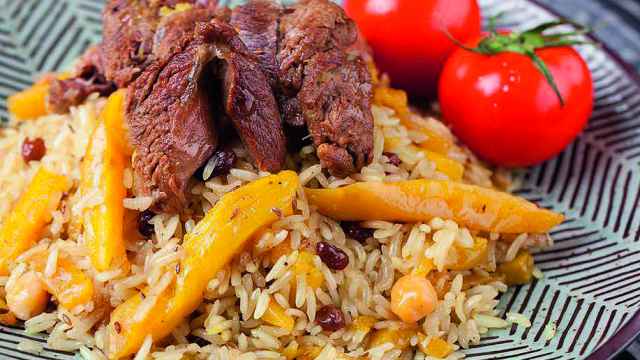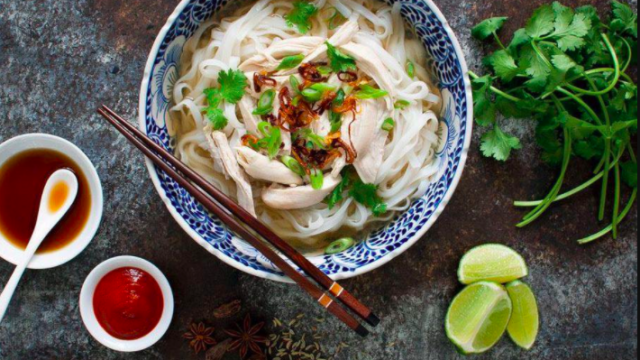Three crystal chandeliers hang from a cement ceiling. Faded mirrors ringed in gold line the brick walls, while perfectly Parisian cafe tables sit on a floor tiled in an oriental mosaic pattern.
A mural on the wall by the halogen-lit bar depicts a jungle scene. Perched next to mysterious naked beauties, the mural’s panthers smile like house cats as they gaze across the room.
But the tropical ferns on the windowsill of Petit Cafe neither block out the din of the cars driving on Prechistenskaya Naberezhnaya, nor calm the busyness of the interior design.
In Moscow, each new eatery or watering hole seems to strive for a decor unlike any other. For Petit Cafe, the Brothers Nemtsev Workshops (Masterskiye Bratyev Nemtsev) have created a loft-style interior, which attempts the “authentic” feel of an artist’s stdio in a repurposed warehouse.
The result is an everything-in-a-pot approach; each space should have as many surfaces, shapes, and lamps as possible brought together for the sake of individuality. This appears in architecture, interior design, and especially in Moscow’s trendy kitchens.
Petit Cafe’s website advertises the “hits of French gastronomy,” but chef Denis Malansky’s menu incorporates international ingredients into his “French” cuisine as freely as an oil painter mixes colors on his palette. The results are often underwhelming, but occasionally remarkable.
For example, Petit Cafe advertizes a “quiche ratatouille” (290 rubles/$5), but presents the sweet vegetable stew inside a tartlet. This, however, wasn’t the biggest problem: The quiche lacked its fundamental ingredient—egg. Petit Cafe’s Nicoise salad (750 rubles), typically served in France as a loose arrangement of tuna, boiled eggs and vegetables, appeared instead as a tossed salad with wilting mixed greens and flavorless tomatoes. But the chef did sear the tuna steak in a sesame seed crust, redeeming the dish somewhat.
The most unusual main was duck breast with berries and “perlotto,” the pearl barley risotto fashionable in Moscow cafes at the moment. Steeped in a tomato cream sauce, the dish (850 rubles) tipped its cap to southeastern France’s hearty cuisine. Dollops of raspberry puree combined with the perlotto’s sauce to produce a trio of acidic citrus, cream, and sweet fruitiness—a culinary analog to Petit Cafe’s busy interiors.
The grilled pineapple (300 rubles) appeared for dessert topped with a scoop of the Soviet era’s favorite Plombir ice cream. A delightful but unknown flavor permeated the warm flesh of the pineapple, but what was it? It turned out it had been steeped in Malibu rum, a mystery ingredient that catalyzed an unforgettable explosion of taste and texture.
On a quiet weekday afternoon, only a limited number of hipsters and “ladies who lunch” strolled past Petit Cafe. The restaurant is surrounded by new luxury condominiums in an exclusive neighborhood for Moscow’s ultra rich. But on the day that I visited, pilgrims in
headscarves flocking towards Church of Christ the Savior mingled with the district’s well-heeled inhabitants.
Like Petit Cafe, Moscow is a study in contrasts, and each entrepreneur, chef, and designer must establish themselves with even more originality. Little wonder such an eclectic aesthetic reigns in the capital’s trendy restaurants.







